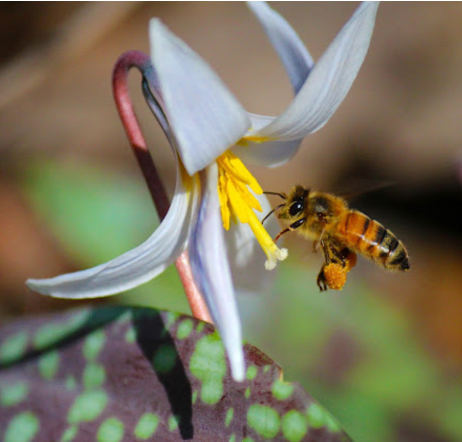Tiered Mentoring Program
Spring wildflower pollination and herbivory monitoring
Dr. Chelsea Miller and Stephanie Wilhelm
Do you like plants? Insects? Are you interested in the effects of climate change or species invasions on native ecological communities? Here in the Miller Lab we are passionate about all of these things, and more! Our lab focuses on the impacts of global change drivers—such as climate change, invasive species, and land-use change—on aspects of spring wildflower ecology and evolution. Specifically, we investigate 1) how insect-plant interactions, such as pollination, seed dispersal, and herbivory, are altered under conditions of global change, and 2) how plant fitness and phenology are altered under global change.
There are currently opportunities to participate in two projects in our lab:
Project #1:
The first project is a large-scale phenology and plant-insect interaction monitoring project that uses community volunteers across a network of botanical gardens to generate observational data for twelve spring wildflower species. We need someone to help clean, organize, enter, and manage the large datasets affiliated with this project. This opportunity will involve computer-based work, and you will learn the ins-and-outs of database management, data visualization, data analysis, and presentation of scientific results.

Project #2:
The second project is a field- and lab-based project being led by Master’s student Stephanie Wilhelm to explore the impacts of invasive garlic mustard (Alliaria petiolata) on the native spring wildflower, cutleaf toothwort (Cardamine concatenata). We need field and laboratory assistants to help conduct pollinator surveys, collect, pin and identify insect specimens in the lab, and collect and prepare pollen specimens. Both opportunities will involve participation in weekly lab meetings, which may include required readings and/or presentations of progress and results.

